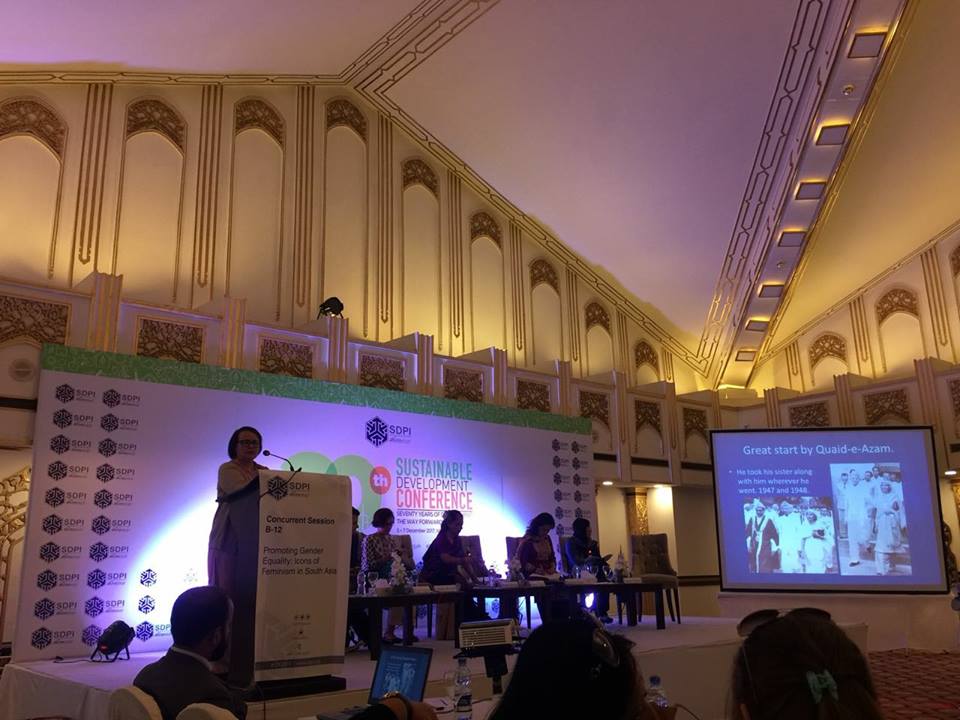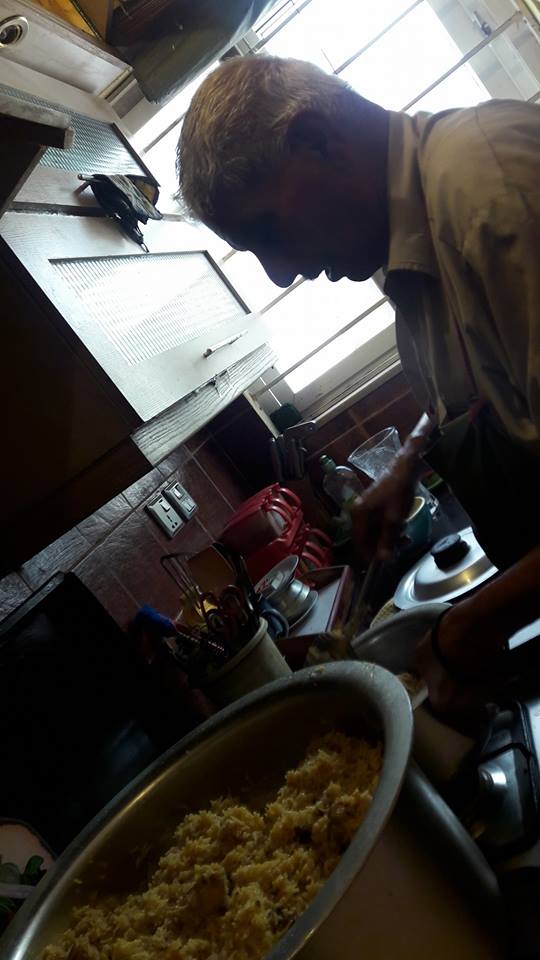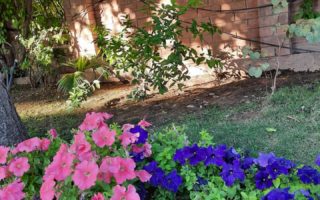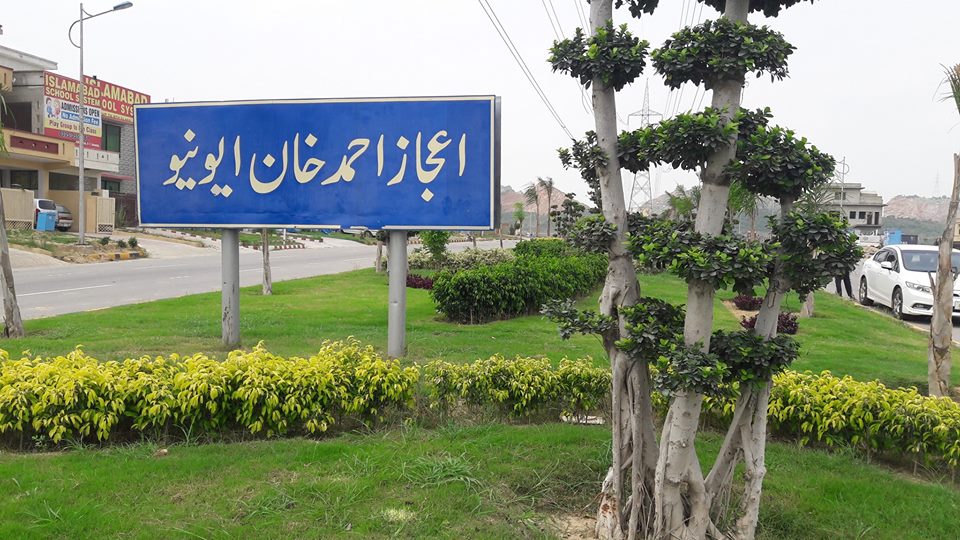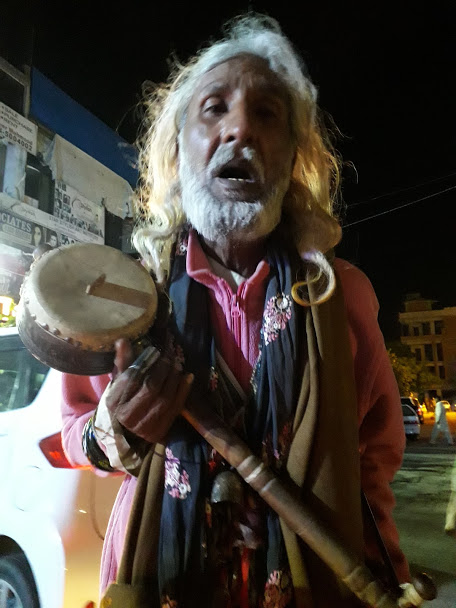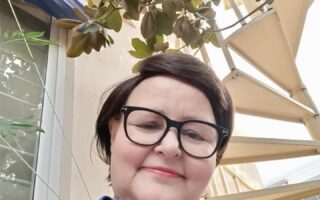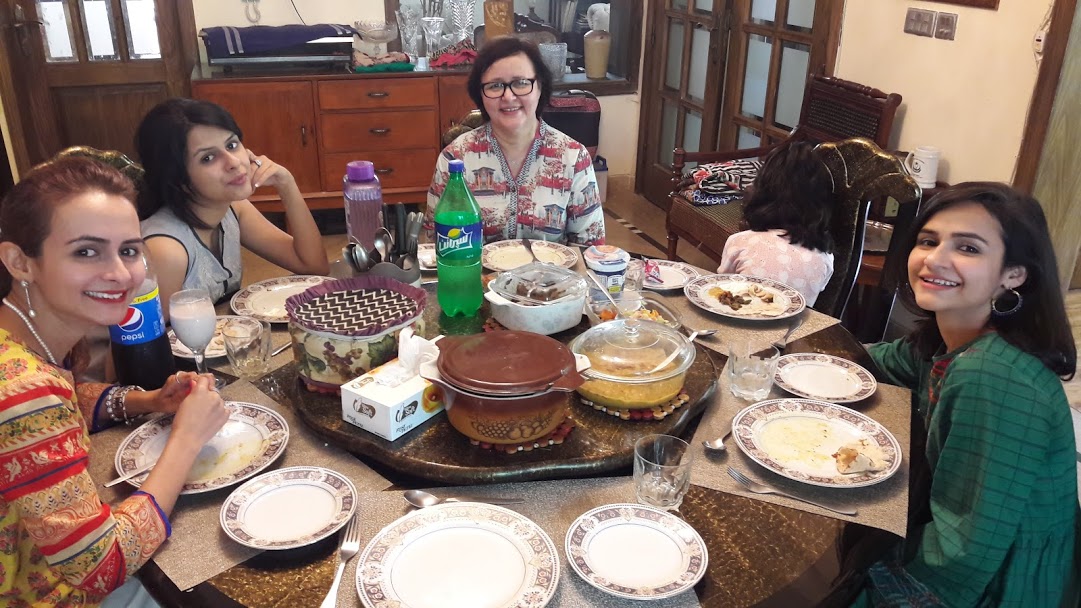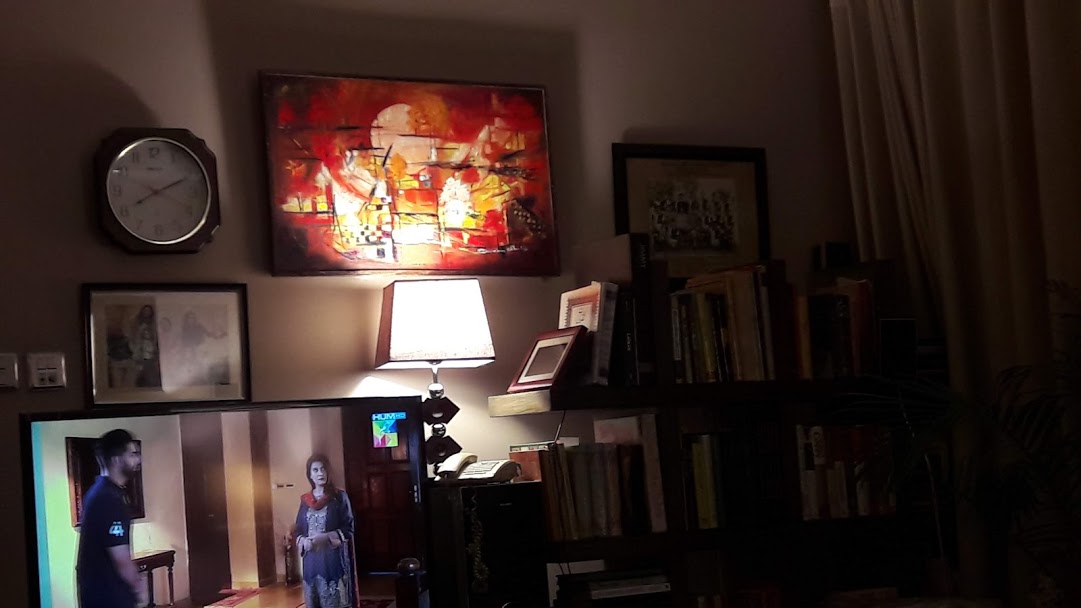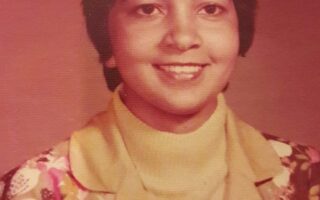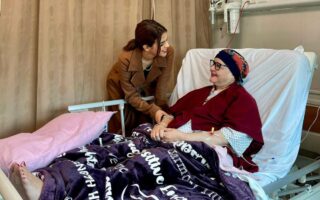Attending one of my favorite conferences…
SDPI:
Almost every December since 2005, I have attended the annual three-day conference of SDPI. This year the theme was: Seventy Years of Development- The Way Forward, it was held on December 5,6th and 7th . I just love going there, it is a great experience. The director Uzma T. Haroon makes a point of inviting me every time. I respect her writing abilities a lot.
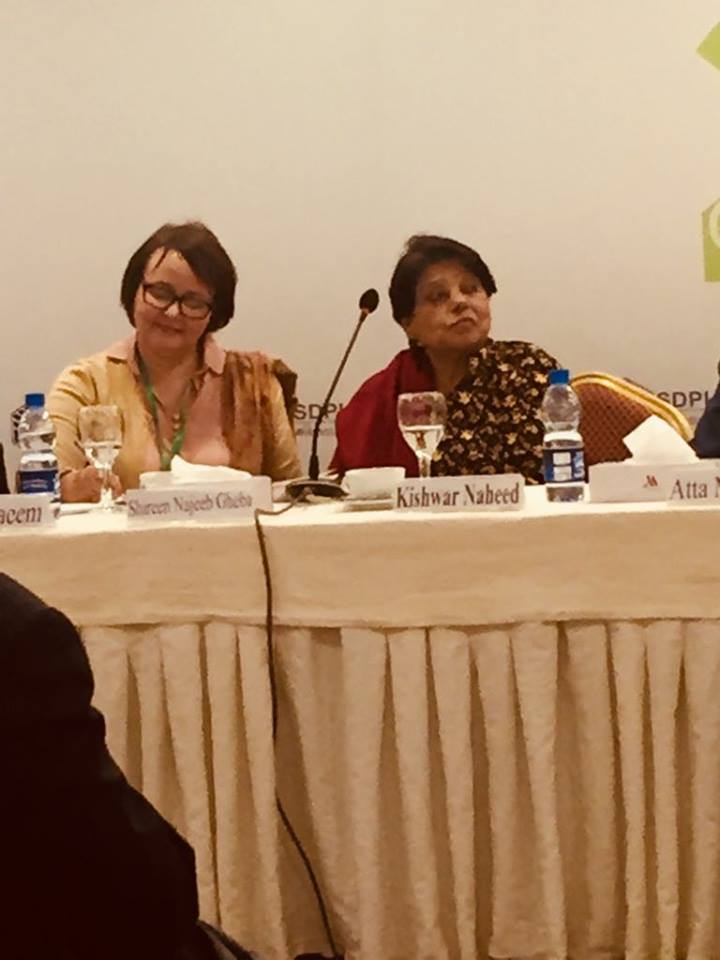
So, this year she asked me to be a panelist for Art as a Resistance against Oppression, also to put up a presentation at the session on Promoting gender equality: Icons of Feminism in South Asia. My presentation was on Icons of Feminism in Pakistan during first 70 years: Suggestions for the Future. Happily I agreed, as both the subjects were close to my heart.
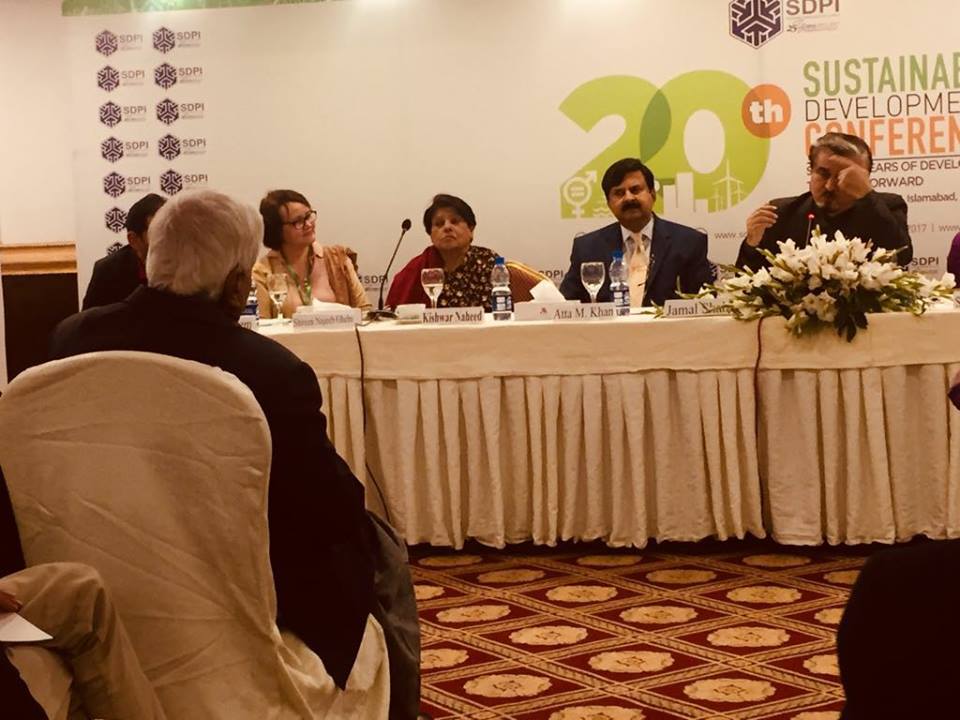
During the art session, it was truly an honor to sit next to icons like the Urdu writer Kishwar Naheed, Actor and DG of PNCA, Jamal Shah. I’ve interviewed both for Dawn many years ago.
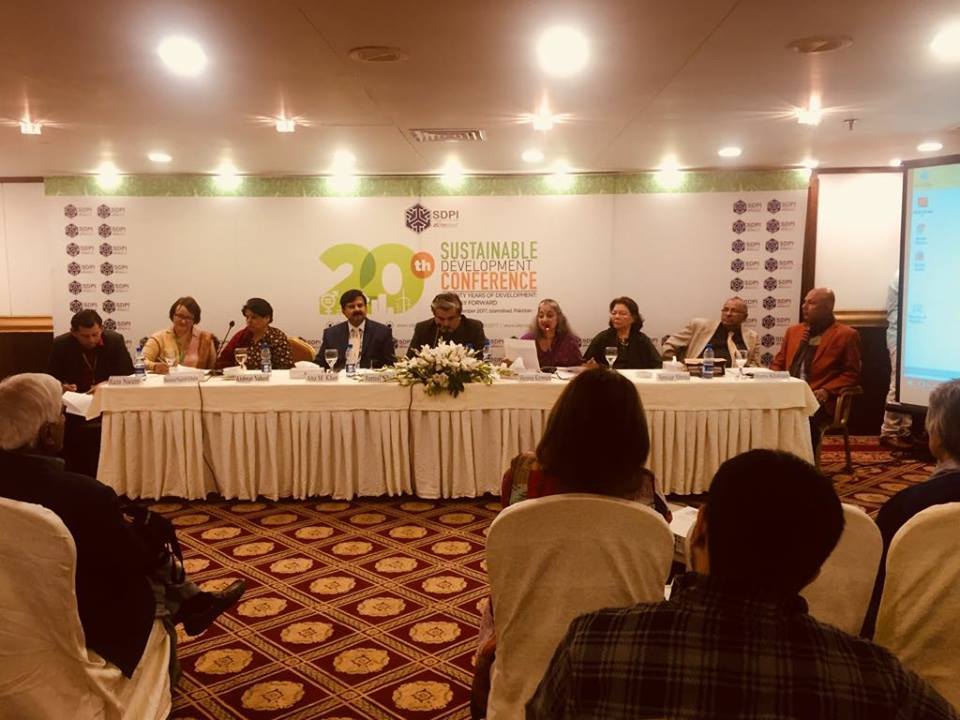
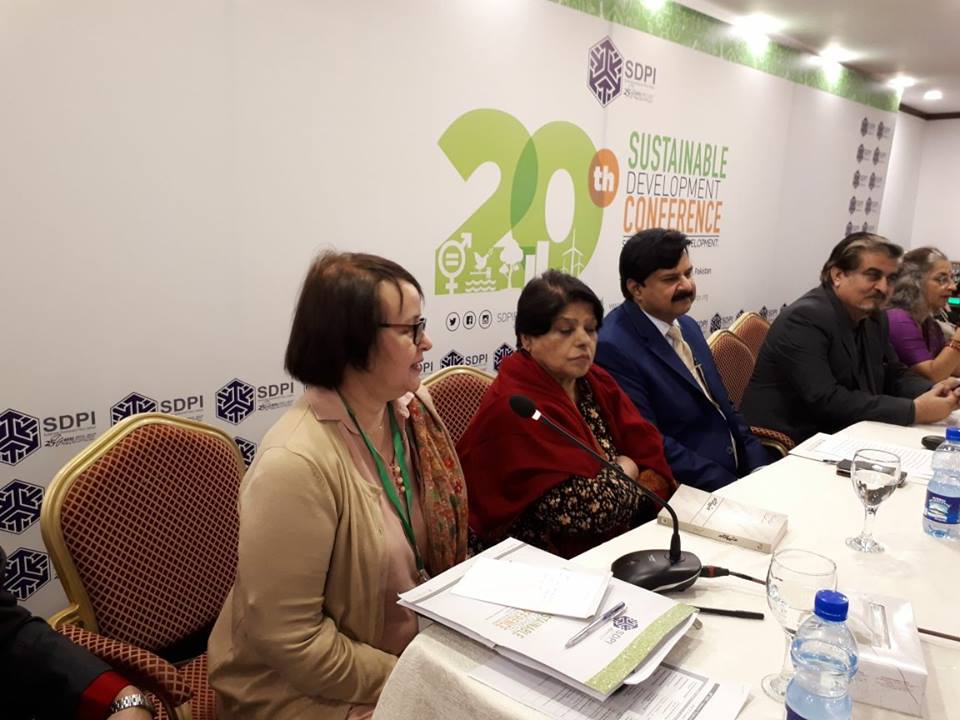 Sheema Kirmani the awesome classical dancer and actor was also there, among other icons. Right before the discussion, we were informed that each panelist will speak for ten minute on the subject and the first speaker was of course Shireen Gheba! I mean, to come unprepared, because you think it’s a discussion, and then to have to speak for ten minutes at such a forum! – Well, once I get started, usually there is no stopping me. So, I shared my thoughts: that one of the greatest persons using his art as resistance against oppression was Allama Iqbal. We Pakistanis are a witness to how meaningful his work was when he actually convinced the people of the Sub-Continent of India to rise for their freedom. Uzma made this video as I spoke:
Sheema Kirmani the awesome classical dancer and actor was also there, among other icons. Right before the discussion, we were informed that each panelist will speak for ten minute on the subject and the first speaker was of course Shireen Gheba! I mean, to come unprepared, because you think it’s a discussion, and then to have to speak for ten minutes at such a forum! – Well, once I get started, usually there is no stopping me. So, I shared my thoughts: that one of the greatest persons using his art as resistance against oppression was Allama Iqbal. We Pakistanis are a witness to how meaningful his work was when he actually convinced the people of the Sub-Continent of India to rise for their freedom. Uzma made this video as I spoke:
https://www.facebook.com/shireen.gheba/videos/1764839760215975/
Each one of us is living in this free country thanks to the inspiring poetry of Iqbal and leadership of Quaid-e-Azam.
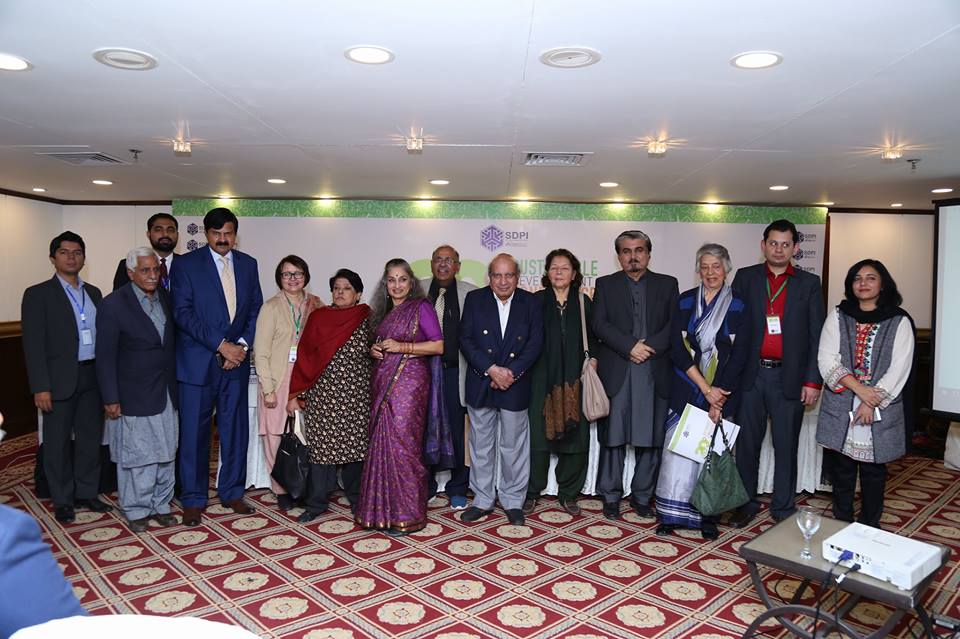
Then of course, after Pakistan came into exhistance seventy years ago, there were many great artists who used art as a resistance against oppression which included Sadequein, and later on poetry of Faiz Ahmed Faiz, Habib Jaleb. Sheema Kirmani has given amazing classical dance performances against oppression of women, Jamal Shah in his television dramas and film productions and Kishwar Naheed through her writings and poetry. Though many speakers didn’t agree with me, but each one sprouted out Iqbal’s Urdu poetry to make their points! – Not surprising, Iqbal’s poetry being what it is!
So, SDPI conferences are usually three days of four concurrent sessions which take place simultaneously for three slots daily: 9.30 – 11.30 am, 12.00 pm – 2.00 pm and 3.00 pm – 5.00 pm. The venue is Marriot – a four star hotel – of Islamabad. The food is lavish and hundreds of people attend the sessions. Each session has panelists who are the gurus in the fields chosen for discussion. Then the audience is also very well read and accomplished, so the subsequent discussion is interesting. Everyone can participate with their questions, and connect with the speakers later during the tea or lunch session. What I really like most of all is the way the whole conference is organized with patience, efficiency and punctuality.
The presentations were in the evening session, and mine was on ‘Icons of Feminism in Pakistan during first 70 years: Suggestions for the Future.’ I was given ten minutes and Nathelene Reynalds was over-all incharge of that session. Sheema Kirmani was chairing it. The Nepalese Bandana was very elequent and she rounded off the session at the end – along with Sheema Kirmani. Everyone spoke with great passion about the plight of women in Pakistan and in South Asia. Sheema specially pointed out the plight of the minority women.
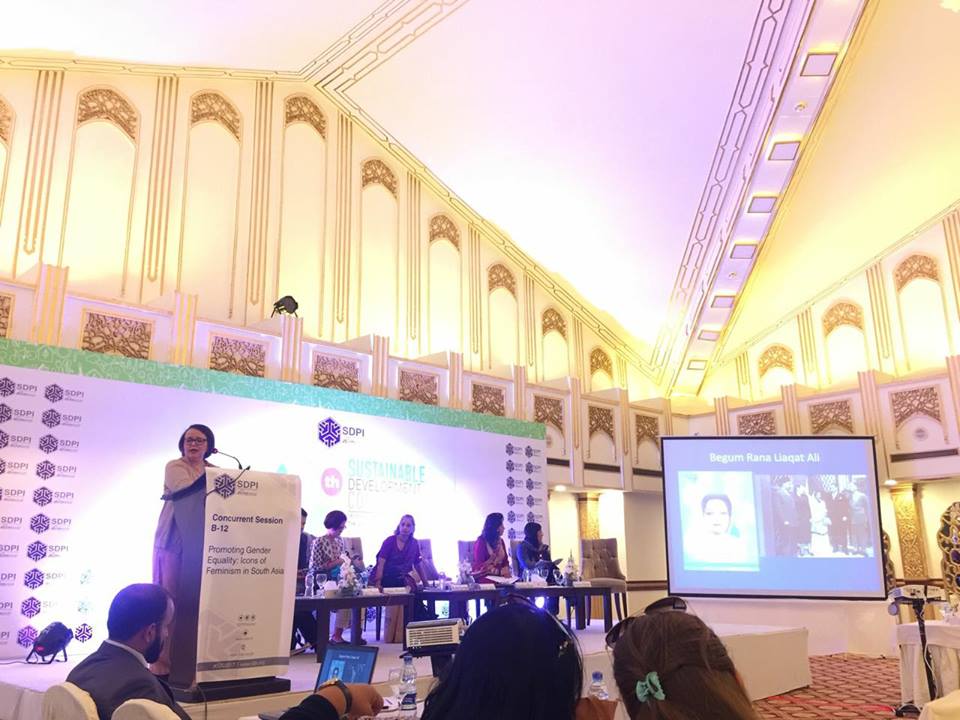
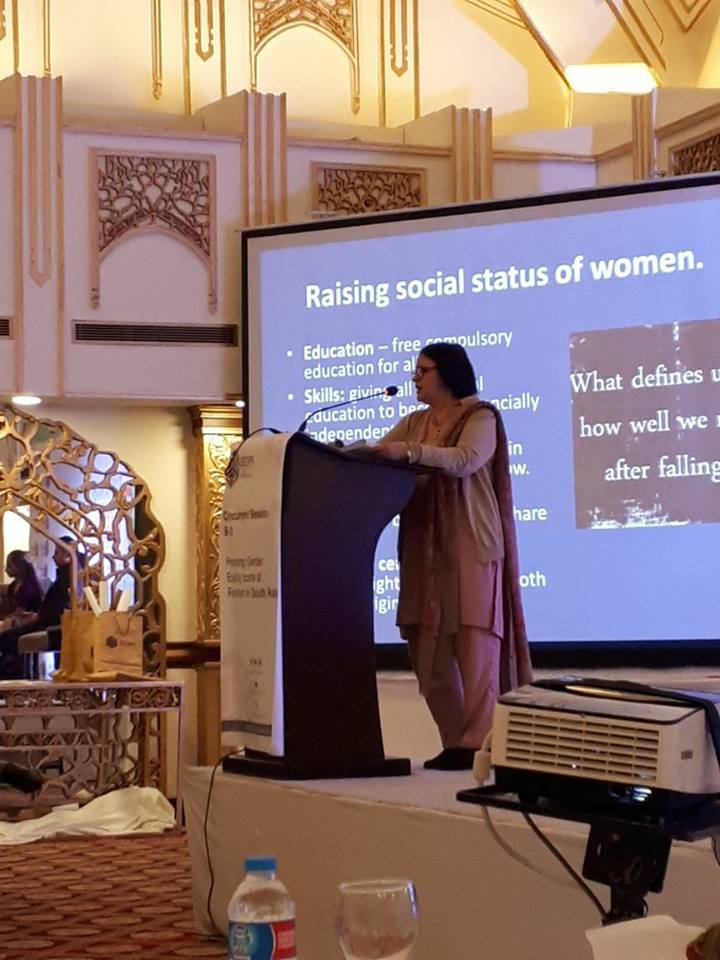
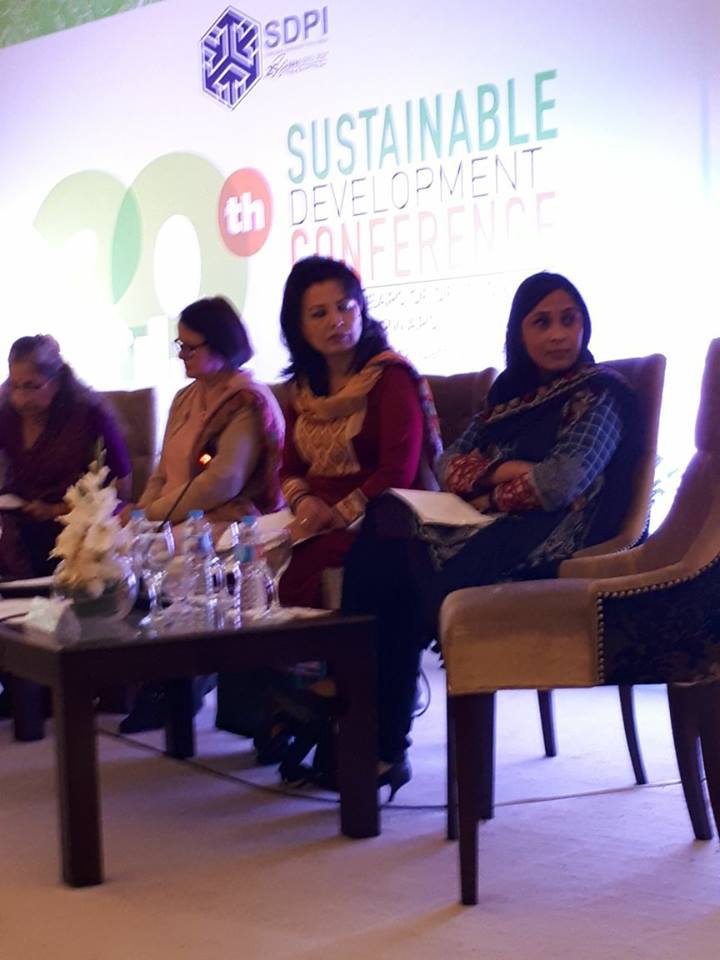
My ninety year old dad insisted on coming to my presentation. It was great having him there. Of course, my daughter Waliya brought him over along with our helper Sabir.
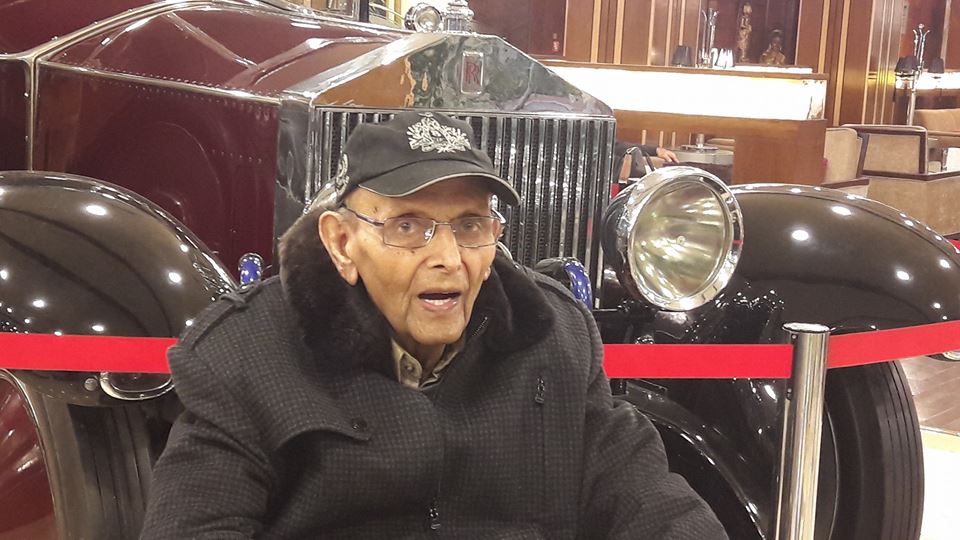
On the last day I attended two sessions, Roundtable on Labor Unions, and next one was on Water Stewardship and Research Initiatives in Pakistan. It was really upsetting to see the situation of the laborers in our country. I had gone there, to get information for one of my upcoming books. Each speaker made one realize how bleak the situation has been. Also, that the European Union has had a very positive effect on the situation and their pressure on our government has made things bearable for our laborers. But the fact remains, situation is bleak, and needs all the attention possible. Many of the laborers do not actually receive the lowest rate of wages which is Rs.15000 per month. Most have to manage within Rs.12000 only. Pays at the manager level are slightly better, but these too are not enough.
It was the same with the water situation in Pakistan, ‘Water Stewardship and Research Initiatives in Pakistan’.
I learnt about ‘drip-irrigation’ and how effective it is. How there are organizations which are actually helping the farmer with research and development of new and effective methods. The Nestle company is doing a lot in this field too, as they had initiated this session of SDPI on water. Hydro-electric power and use of water storage and rain water storage was talked about too.
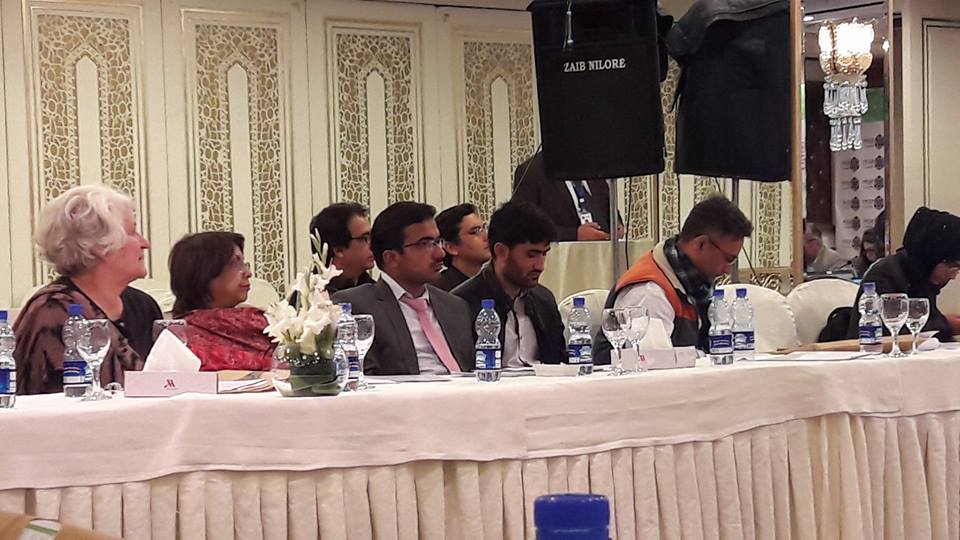 Helga was there too in the audience, she is a German residing in Islamabad, who has done a lot in this field. She even helped a village use biogas as source of energy. There was Rina Saeed Khan who is a journalist and one of the panelists. (Later on I bought her book ‘From Mountains to Mangroves – protecting Pakistan’s Natural Heritage.’) There was a person from Nepal telling us it isn’t easy there either. One of them informed me that though the Islamabad water table has got lowered, it still isn’t as low as it is in Lahore where you have to do boring till around 700 feet below ground level. The need for educating the masses to save water at all levels, was deeply felt. One of the SDPI members even gifted me a book of theirs. They are all so dedicated and sincere in their efforts. We, the people of this city and the country should be active also.
Helga was there too in the audience, she is a German residing in Islamabad, who has done a lot in this field. She even helped a village use biogas as source of energy. There was Rina Saeed Khan who is a journalist and one of the panelists. (Later on I bought her book ‘From Mountains to Mangroves – protecting Pakistan’s Natural Heritage.’) There was a person from Nepal telling us it isn’t easy there either. One of them informed me that though the Islamabad water table has got lowered, it still isn’t as low as it is in Lahore where you have to do boring till around 700 feet below ground level. The need for educating the masses to save water at all levels, was deeply felt. One of the SDPI members even gifted me a book of theirs. They are all so dedicated and sincere in their efforts. We, the people of this city and the country should be active also.
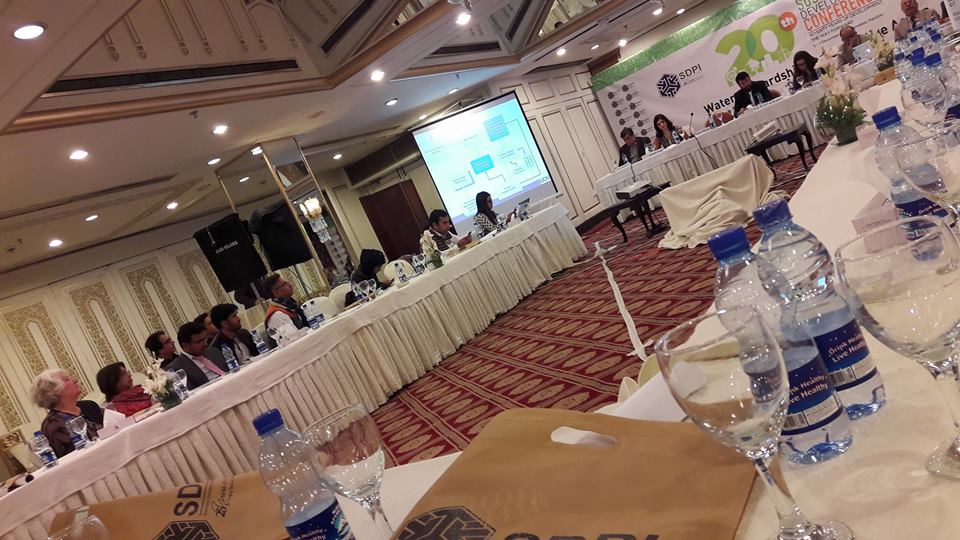
Tariq Buneri who founded this wonderful organization and is settled in Utah, USA now, was there at the sessions. Dr. Abid Qaiyum Suleri is the Executive Director, SDPI. Their sincere efforts are evident in the smooth manner in which such a complicated conference is carried out so efficiently. It was heartening to find students from universities attending, along with these girls from Islamic University.
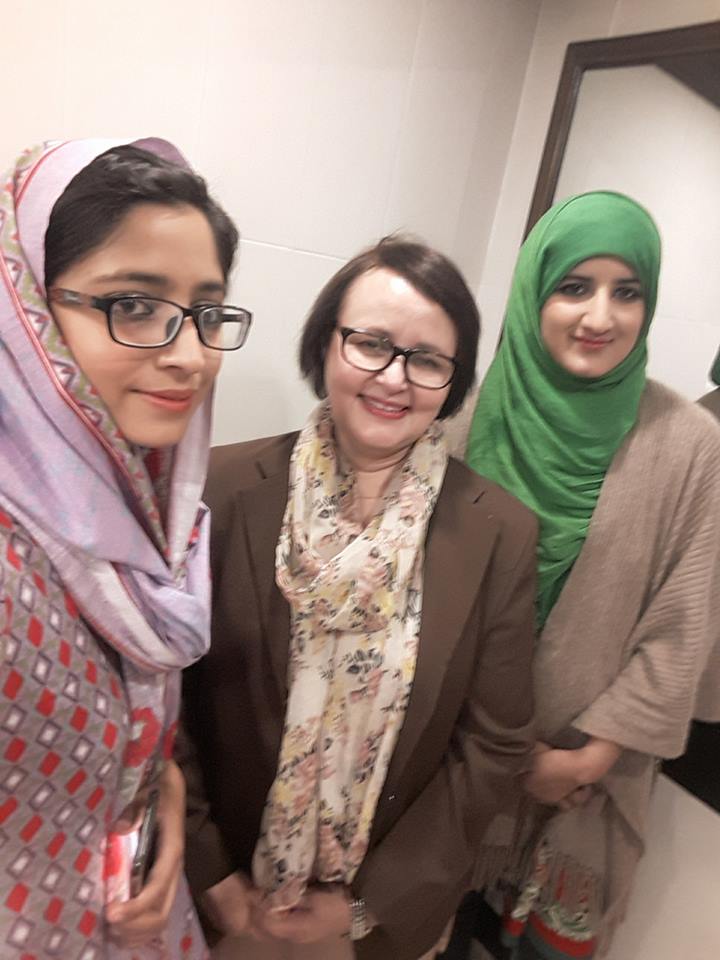 Many housewives, lecturers, and government officials are usually present at these sessions. It is time we all got out of the shopping craze to come to such conferences and see where our country is actually going. It is important to find out where we stand in comparison with our neighboring countries. To meet their intellectuals and compare notes. It is also heartening to find common problems, also eye opening to see how they are combatting the problems of trade, communication systems, water, electricity, health and education.
Many housewives, lecturers, and government officials are usually present at these sessions. It is time we all got out of the shopping craze to come to such conferences and see where our country is actually going. It is important to find out where we stand in comparison with our neighboring countries. To meet their intellectuals and compare notes. It is also heartening to find common problems, also eye opening to see how they are combatting the problems of trade, communication systems, water, electricity, health and education.
Through the sessions skype talks were also initiated, which mostly fizzled out due to connection issues.
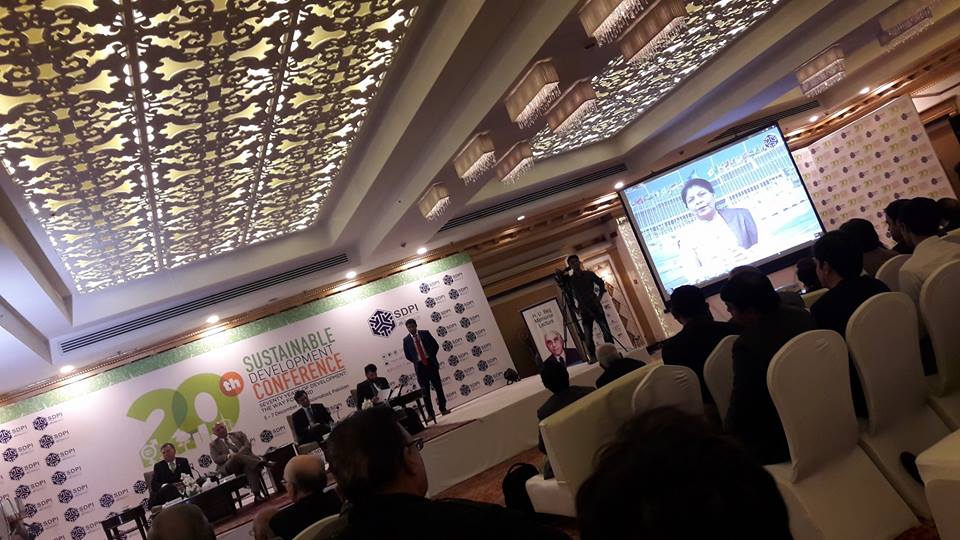 However, the one on the closing ceremony was successful with Ms. Shamshad giving a detailed talk. (Some of us wished there was a skype issue here too, as it was getting a bit long,) Anyhow, the next speech by Mushahid Husain was interesting. His speech was a breath of fresh air; giving a very optimistic picture of our region in the upcoming months and years. He informed everyone of the number of projects already on the way, which include the new Islamabad Airport, the CPEC roads and many other projects. There is a bright future ahead, do not be dismayed.
However, the one on the closing ceremony was successful with Ms. Shamshad giving a detailed talk. (Some of us wished there was a skype issue here too, as it was getting a bit long,) Anyhow, the next speech by Mushahid Husain was interesting. His speech was a breath of fresh air; giving a very optimistic picture of our region in the upcoming months and years. He informed everyone of the number of projects already on the way, which include the new Islamabad Airport, the CPEC roads and many other projects. There is a bright future ahead, do not be dismayed.
Previously, I’ve attended invigorating sessions on Media, attended by the late Agha Nasir. I’ve seen Muneeza Hashmi and Salima Hashmi in such programs. The late Khwaja Masood the great educationist also often chaired many memorable sessions on Education. I’ve heard him saying, ‘you all have read history – I’ve lived it!’ – he was around eighty-four years old then. I often meet the great Shamsul-mulk at these sessions, his complexion glows more with every year. Also, some of my favorite speakers were Haroon Sharif, Bandana, Sheema Kirmani, Rina Khan and Kishwar Naheed.
I make a point of attending such conferences or workshops through which I learn more about what is going on. These are eye openers. What is interesting is to meet like-minded people at such places, and share experiences. Also it gives one a better outlook as to what is going on. Instead of sitting at home, and making bleak conclusions it is better to go out and find out for yourself. There is a lot of hope and when it is hopeless, you know what is to be done. See, where you can make a difference.
We all still have some life left in us, let’s make the most of it, to leave this world a bit better than we found it. I’ve never regretted going to such functions.
Never. When you go, try to sit in the front row, ask questions, participate, and come out wiser.
Stay blessed, my dear Reader. Let us be very selective with our time, such opportunities of attending conferences need to be availed.
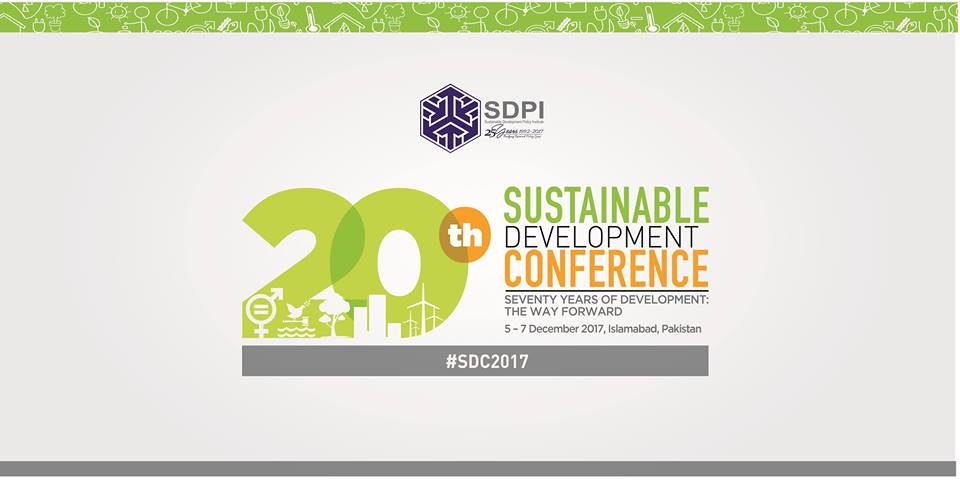
Photographs taken and provided by author, and with thanks from Waliya Najib and Uzma T. Haroon. (video by Uzma.)

